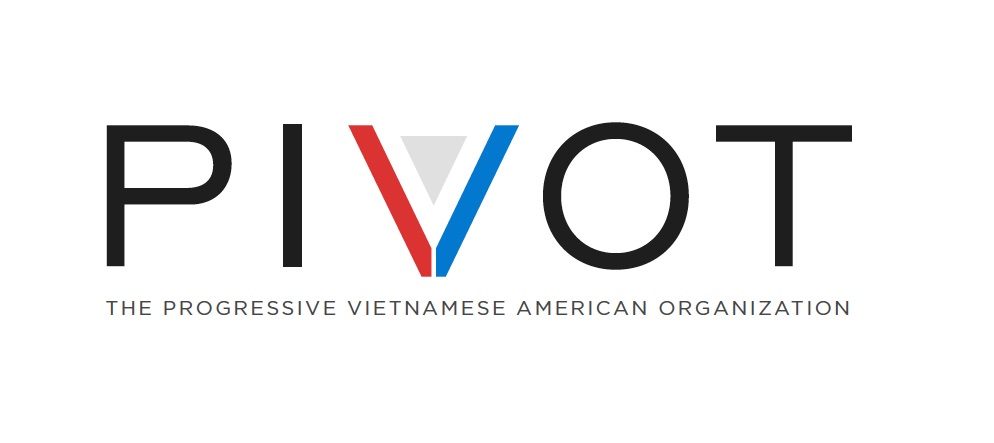PIVOT Statement: The Health Cost of Not Caring About Politics
/October 4, 2025
Many Vietnamese Americans do not care about politics for good reasons. Some believe that no matter what they do, things will not change. Many are too busy just trying to put food on the table and a roof over their family’s heads. Others still face language barriers, and may not know how to navigate the American political system. And some who are grateful to live in the U.S. may not feel they can criticize the country that saved them. But the truth is that, whether or not we care about politics, it affects all of us. This is clearest when it comes to our health and health care.
In July, Donald Trump signed into law what Republicans call the “One Big Beautiful Bill” Act. This law will cut $1 trillion in funding for health and social programs, the biggest cut in American history. About 17 million people will lose their health insurance. These cuts have some immediate, terrible impacts that we are already seeing and some long term ones that will be devastating.
Overall, approximately 7 million people who are poor will lose their Medicaid coverage (MediCal in California).
To keep Medicaid coverage, people will have to prove every 6 months that they are looking for work or are working. A majority of Americans do support tying Medicaid eligibility to work requirements. However, most people on Medicaid are already looking for work. The reporting requirement just makes it especially difficult for those who do not speak English well or have trouble with Internet access, to stay enrolled. This includes the Vietnamese American community, which has nearly 900,000 people who do not speak English very well. With budget cuts, community organizations that could have helped poor Vietnamese Americans stay enrolled would not be able to continue.
Since many Vietnamese Americans work for or own small businesses, the Affordable Care Act (ACA) has been a good way for them to get health insurance. Half of those who buy insurance through ACA are small business owners or self-employed. This will get harder with the new law due to barriers placed on enrollment and staying enrolled. Federal subsidies to help people afford their ACA coverage have also been reduced, leading to premiums going up by an average of 75% in 2026. In total, another 5 million Americans will lose their ACA health insurance coverage.
Nationally, the Urban Institute estimates that hospitals and healthcare providers would face more than $32.1 billion in lost revenue and a $7.7 billion spike in uncompensated care in 2026. These cuts will lead to reduction of services and access to doctors.
Here are some examples from just the last three months since the bill was passed. Orange County in California closed its clinics for children’s health, emergency dental, and family planning to deal with an expected $13.7 million in federal cuts over the next two years. Children’s Hospital of Los Angeles (CHLA) is laying off over 400 staff. Like many other children’s hospitals, CHLA relies heavily on Medicaid (three in four of their patients are on Medicaid) and are preemptively making cuts.
Hospitals and clinics have been closed in California, Georgia and Virginia, with many more preparing for cutbacks or closures across the U.S. Closure of hospitals and clinics affects everyone, including those with private health insurance, who may get care at a hospital that is closing or experience more overcrowding and delay in care at remaining healthcare facilities.
Even Medicare will be affected. Starting October 2026, refugees will no longer be eligible for Medicare. The Medicare Savings Program, which helps low income people on Medicare to pay their premiums and out-of-pocket costs, will be cut back. The Medicare program will no longer be able to negotiate lower prices for patients for many expensive medicines.
Some Vietnamese Americans may still not care about this, because they do not care about the poor and the working middle class. In the long run, reductions in Medicare funding may lead to no more Medicare hospital coverage by 2033. This is a very important outcome that affects all of us since we all depend on Medicare to cover our families and us once we reach age 65 or older.
The tragedy is that, when we or our loved ones are sick, we are already suffering. The Trump administration has added concerns about how to pay for necessary health care to that suffering. High health care costs are the number one cause of bankruptcy in the U.S.
Who will benefit from all this suffering? The One Big Beautiful Bill Act’s main beneficiaries are the very wealthy who will continue to have their big beautiful tax cut from the first Trump administration. The richest 1% of Americans will have their taxes reduced by $1 trillion over the next 10 years. The top 0.1%, or about 200,000 households with annual incomes over $2 million, will get $500 billion in tax cuts. This tax cut is so expensive that, even after all the health insurance cuts, this law will actually increase the national debt by $3.4 trillion. This, of course ,is another long-term burden that we and our children will have to pay.
Make no mistake—if we do not care about politics, it will continue to be controlled by the very wealthy who will make as much money off of our suffering as possible. The political debate in this country and among Vietnamese Americans should not be about socialism or communism. It should rightly be about how much more we must suffer so that the billionaires can make another billion dollars every day.

